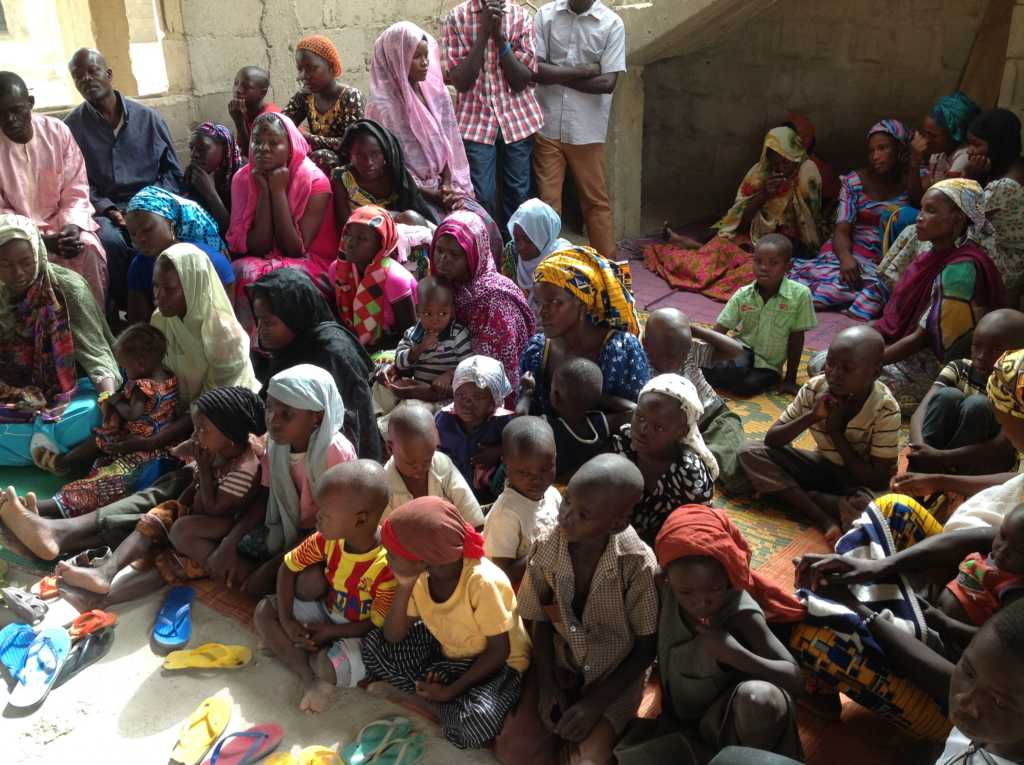As Islamist terror group Boko Haram wreaks havoc across West Africa, horrific stories of capture, torture, rape and execution continue to shock the rest of the world. Among these tales of brutalization, unlikely stories of hope have emerged as former Boko Haram captives share their experiences.
Open Doors USA recently highlighted the story of “Esther,” whose remarkable survival in the most dire of circumstances is being used to point others to Jesus Christ. Through her faith, relentless hope and gritty determination, Esther made it through the most horrific ordeal imaginable.
The Open Doors website notes that in October 2015, the Islamic extremist, whose name roughly translates to “non-Islamic education is a sin,” struck Esther’s town.
“When the first gunshots rang out, followed by harrowing screams, Esther and her father ran to escape. It was too late—the attackers had already surrounded their house,” the site notes.
Esther’s father was badly beaten and left for dead, but Boko Haram militants took several of the young women and held them captive. The militants tried to coerce Esther and the rest of the girls into renouncing their faith in Christ and swearing allegiance to Allah, the god of Islam. But even as many others gave in, Esther refused.
“In her heart, she decided: If I perish, I perish. But I will not become a Muslim,” Open Doors states.
This defiance angered the soldiers, who raped her repeatedly as punishment.
“I cannot count how many men raped me,” Esther recalled. “Every time they came back from their attacks, they would rape us… defile us… .”
The young woman experienced extreme despair, which led her to question her own faith in Christ.
“Each passing day, I hated myself more and more,” she said. “I felt that God had forsaken me. There were times when I was so angry with Him … Still, I could not get myself to renounce Him. I found myself remembering His promise to never leave me or forsake me.”
After being subjected to a relentless onslaught of sexual assault, Esther became pregnant.
“I had no idea how on earth I would ever be able to love this child,” she said.
Eventually, Esther was rescued from captivity, and returned to her village by the Nigerian army.
After surviving such a horrific experience, one would expect that she would be received with love from her community, but that couldn’t have been further from what happened. Instead, people shunned her, calling her a “Boko Haram woman.”
And Esther’s experience isn’t unique.
“People call me ‘Boko Haram wife’ to my face,” another former captive of Boko Haram told NPR. “They say I am the wife of a killer—so how can I be afraid of Boko Haram? They say my son is a Boko Haram baby.”
The issue was addressed in a recent Unicef report:
“Some are returning with their children who were born as a result of sexual violence,” Unicef wrote of those women who are returning to their hometowns after being held by Boko Haram militants. “As they return, many face marginalisation, discrimination and rejection by family and community members due to social and cultural norms related to sexual violence. There is also the growing fear that some of these girls and women were radicalised in captivity. The children who have been born of sexual violence are at an even greater risk of rejection, abandonment and violence.”
Unicef adds that community members often fear that these women have been radicalized while in captivity, and are concerned that they pose a threat to the village.
Such concerns are not unfounded, as an increase in the use of female suicide bombers in the region has caused many natives to feel anxious about the return of those held by the militants.
As a result of this tragic and complicated reality, Unicef notes that many of the young children born out of these situations are at risk for “further violence.”
Esther shared that the prejudice her child received was horrific.
“They mocked me because I was pregnant,” she told Open Doors. “Even my grandparents despised me and called me names. I cried many tears. I felt so lonely.”
Locals even refused to call her daughter by name.
“What broke my heart, even more, was that they refused to call my daughter Rebecca. They referred to her only as ‘Boko,’” she shared
But for all of her grief, Esther’s story is ultimately one of great hope and healing.
When one of her church leaders suggested that she connect with Open Doors, everything began to change for this brave woman. Esther was invited to a trauma care seminar, where she and others were invited to pour out their pain and heartbreak at the foot of the cross. They were encouraged to let Christ take away any shame they felt as a result of the rape and assaults, writing down their burdens on sheets of paper and pinning them to a cross.
“When I pinned that piece of paper to the cross, it felt like I was handing over all of my sorrow to God,” Esther recalled. “When the trainer later removed all the pieces of paper from the cross and burnt them to ashes, I felt like my sorrow and shame disappeared, never to come back again.”
(H/T: Open Doors USA)



